An Entrepreneur Navigates the Arts and Crafts Movement
by Peter A. Copeland
The Arts and Crafts movement – roughly the period from 1895 to 1915 – had its origins in Great Britain but it promptly acquired adherents in the United States. The Arts and Crafts philosophy of Englishmen John Ruskin and William Morris was enthusiastically adopted by leaders of the American Arts and Crafts movement, including by Gustav Stickley, founder of the Craftsman Workshops and publisher of The Craftsman magazine. As the writings of Ruskin, Morris, Stickley and many of their contemporaries make clear, the Arts and Crafts movement was essentially a reform movement to address a number of perceived societal ills, among them the “inutilities, the ugliness, the sham and pretense” of much of what was mass produced for consumers in factories of the day. Proponents of the Arts and Crafts movement “sought to demonstrate the value of art combined with honest workmanship” and to incorporate art into factory-made goods. The new design aesthetic was summed up in William Morris’ oft-quoted injunction, “Have nothing in your houses that you do not know to be useful, or believe to be beautiful.” To Fred Dennett, the hard-nosed businessman and founder of The Lakeside Craft Shops in Sheboygan, Wisconsin, Morris’ words became a sort of mission statement.
Fred Albert Dennett (1849-1920) was one of many American entrepreneurs who, at the turn of the twentieth century, embraced the Arts and Crafts movement and sought to profit from it. Dennett was born in Greenville, Maine but he moved with his family to Pigeon River, Wisconsin (Sheboygan County) in 1851. After completing high school and some courses at a business college, Dennett went to work for a Milwaukee farm equipment company where he showed considerable executive abilities and rose to the position of company secretary. Within a few years, Dennett struck out on his own, founding the Dennett Harvester Company. This company was eventually absorbed into International Harvester Company, but by that time Dennett had cashed out.
In 1886 Dennett moved to Sheboygan and with two partners established what became the Northern Furniture Company. However, when the factory burned down (a relatively common occurrence in those days), Dennett sold his interest in the company and struck out on his own again – this time, establishing a furniture company in neighboring Port Washington, Wisconsin. The Wisconsin Chair Company began operations in September 1888 with thirty-five workers; within ten years, Dennett’s company employed more than 600 workers. The company’s rapid growth necessitated new production facilities. Soon the company’s factories surrounded the three sides of Port Washingtonís natural harbor, thus enabling lake freighters to deliver lumber and to take on shipments of furniture from the company’s own docks.
In 1899, the company suffered a devastating fire that destroyed the entire plant. Miraculously, the factory was rebuilt and back in operation within ten months. The company continued to prosper and, by 1910, the company was producing 475,000 chairs per year and selling them throughout the United States, Canada, and Mexico. The Wisconsin Chair Company became one of the country’s largest furniture manufacturers. It was the crown jewel in Dennett’s business empire. It remained in business until 1954.
While actively managing his sprawling business empire from the president’s office of the Wisconsin Chair Company, Dennett served in the Wisconsin State Senate from 1896 to 1900 representing the Twentieth District encompassing Sheboygan and Port Washington, and he served as Mayor of Sheboygan from 1901 to 1903.
In October 1910, at the age of 61, Dennett decided to launch yet another business – The Lakeside Craft Shops – in a new factory to be constructed in Sheboygan. The company was to produce furniture and home furnishings including “many articles not generally produced.” Dennett tapped his son-in-law, Edward J. Barrett, to manage the day-to-day operations of The Lakeside Craft Shops. Dennett doubtless chose the name “The Lakeside Craft Shops” (after an earlier trial of the name “The Woodcraft Guild”) for the illusion it suggested of a band of contented craftsman producing artistic, hand-made products for the home. By 1910, there were hundreds of furniture companies throughout the country manufacturing Arts and Crafts furniture of varying quality. It was therefore very risky for Dennett to enter this crowded marketplace with his own line of Arts and Crafts furniture and furnishings. Nevertheless, The Lakeside Craft Shops began production in 1912… and business was good.
The Lakeside Craft Shops specialized in small pieces of furniture, such as cellarettes, footstools, and umbrella stands, and even smaller home furnishings, such as fern dishes, bookends, and serving trays. The company’s 1912 catalogue, which has been reprinted for the benefit of modern day collectors, shows over 300 items in its eighty-six pages. The company marked each of its pieces (size permitting) with a decal showing a woodworker wielding a wood plane above the apt motto, “Art in the Home” – a motto that perfectly captures a major tenet of the Arts and Crafts movement.
Sheboygan was a good choice for the home of The Lakeside Craft Shops. Sheboygan was close to sources of lumber and close to markets. Moreover, Sheboygan offered a large pool of experienced furniture workers. Sheboygan already was home to dozens of furniture manufacturers, and long before The Lakeside Craft Shops were established, the city enjoyed the nickname the “Chair City.”
Meanwhile, Dennett became keenly interested in a new and transformative technology, the phonograph. Recall that Dennett had been supplying Thomas Edison with phonograph cabinets since about 1910. After Edison’s West Orange, New Jersey factory complex burned in December 1914, Dennett’s business relationship with Edison grew. In fact, in December 1916, Dennett sold to Edison one of his Wisconsin factories so that Edison could make his own phonograph cabinets. Thus it was not surprising that Dennett caused The Lakeside Craft Shops to launch yet another new enterprise – Dennett Phonographs – in June 1916. (Figure 8) Dennett also changed the name of one of his other companies to United Phonographs Corporation. Dennett commissioned a second factory in Sheboygan, adjacent to The Lakeside Craft Shops, specifically for the purpose of making phonographs. While that factory was being built, The Lakeside Craft Shops continued to manufacture phonographs for its sister company under the “Puritan” and later “Paramount” trademarks.
As Dennett was ramping up his phonograph and records business, he decided to close The Lakeside Craft Shops, which he formally dissolved in 1919. The company had been very successful during the few years it was in active operation. However, Dennett, like most leaders in the furniture trade, recognized the public’s changing tastes. By the end of World War I, the “mission” style was no longer in vogue. In addition, Edward J. Barrett, who had been managing the company for Dennett, had been away on active duty with the U.S. Army from April 1917 to April 1919.
Dennett was in the process of starting up yet another new company – one to supply motors for phonographs – when he died suddenly in May 1920 at the age of 70.
All of Sheboygan and Port Washington mourned his passing as did many colleagues in the furniture trade. Unlike many of his counterparts in the furniture industry, it seems that Dennett was genuinely liked by his workers. Dennett’s death was a significant loss; he was a generous benefactor to many institutions and individuals in both the Sheboygan and Port Washington communities.
The Lakeside Craft Shops was reincorporated in August 1922 by some of its former employees. The company specialized in its now-famous “Bluebird” cedar chests; however, the company could not survive the Great Depression and finally went out of business in 1934.
Still The Lakeside Craft Shops remains a prominent actor in the current Arts and Crafts revival. The company’s furniture and home furnishings remain useful and beautiful today, at least in the eyes of many Arts and Crafts collectors, who appreciate “Art in the Home.” William Morris would be pleased.
Peter A. Copeland is a retired corporate attorney. He and his wife Janet have collected Arts and Crafts furniture and related “stuff” for thirty-plus years. In 1993, they established The Parchment Press to publish and sell books on the American Arts and Crafts movement. They currently reside in Kalamazoo, Michigan with their beagle Fred (named, of course, after Fred Dennett).


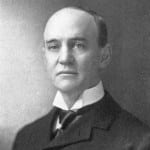
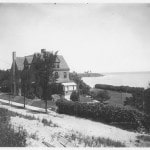
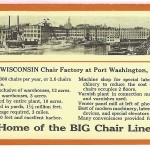


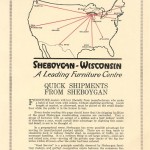
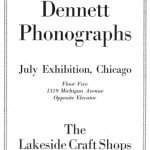



Related posts: